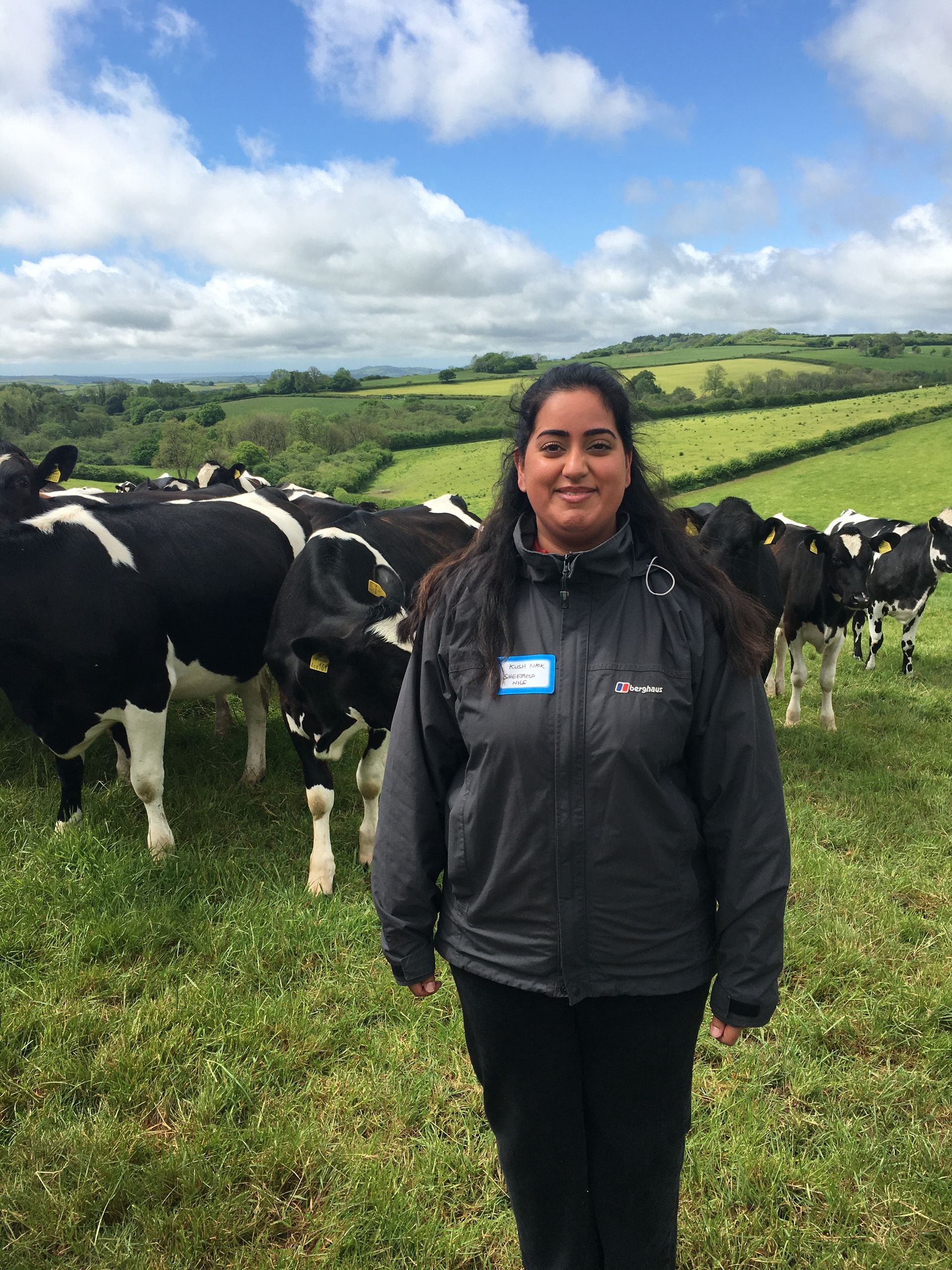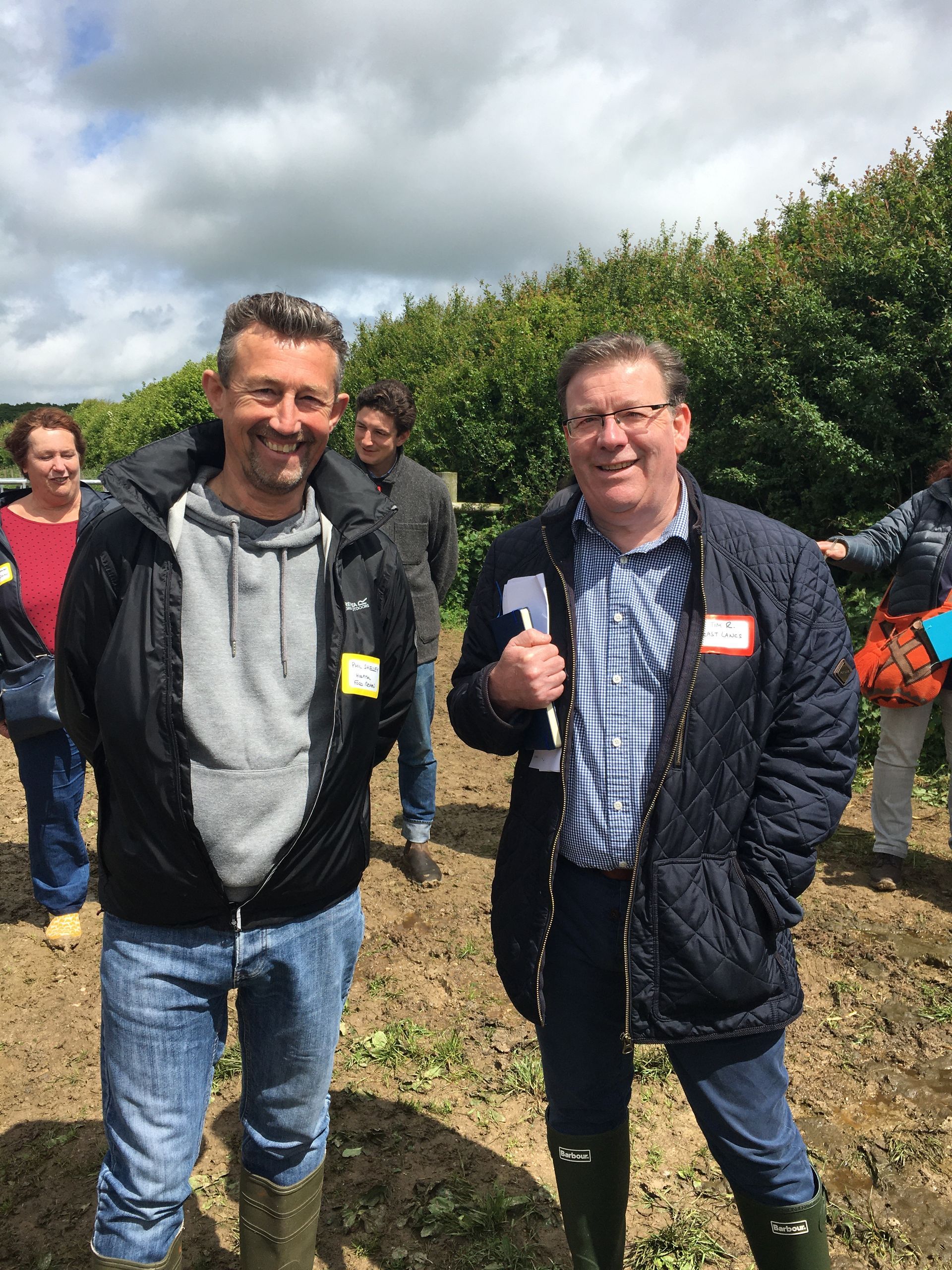The larks ascended from Urless farm in Dorset close to where Gabriel Oak’s sheep tumbled to their deaths from a ridge in Hardy’s Far from the Madding Crowd. A group of NHS catering managers admired the view. The farmer, Oliver Hemsley, was telling them about the hedges he has planted, the wildlife that has flourished and his herd of organic, dairy cows whose delicious Hollis Mead dairy products are produced in harmony with nature.

I had brought them here as part of the campaign Love British Food leads promoting the purchase of British food by the public sector. A £1.6bn opportunity for British farmers. It is not enough to ask caterers to buy British. They want the whole narrative. Which is why we were standing on a hill.
New government buying standards requiring “an aspiration that 50% of the public sector’s food expenditure is on food produced locally or to higher environmental production standards” have been on the table at Defra for a while. A worthy aim, but the word ‘local’ flummoxes NHS caterers; it is not possible for many Trusts. Much better to use the word ‘British’.
The war in Ukraine and other global factors have made supply chains dramatically less reliable. One manager attending the farm visit told how he had been forced to buy bags of salad from his local supermarket. Much better if he had a local supplier who he could rely on long term. Buying more products nationally will ensure security of supply.
Joyously one of the Trusts was about to issue a new milk tender. We discussed how local farmers may apply. The NHS buys one pint of milk per patient a day. It should be British dairy farmers’ best customer. Imagine farmers telling their children they have a contract to supply the local hospital. No fear of 3rd generations getting out of farming.
One catering manager told how he got Purbeck ice cream on menus. Working with his dietician he proved that the higher nutritional content justified the increase in price over the bog standard ice cream they used to serve.
We discussed price. I have been told by senior NHS managers that money is not the problem. There is money in the system. The issue is how it is allocated. CEOs of NHS Trusts do not have food on their agenda. And if it is, the urgency of other current priorities will soon sweep it off.
One manager talked about how he put venison on his menus even though it costs a bit more. He achieves this by doing his budget over a 14 day period, not a daily one. He balances his books by putting a seasonal vegetable stir fry on another day.
When we gathered for a working lunch in the barn after, I learned that changes in purchasing need to be made in gritty detail to enable the NHS to buy more British food. Dieticians and catering teams sit in Soft Facilities Management. Sustainability Officers in Estates. Procurement Teams elsewhere. All need to work together to achieve new supply chains. It is not easy. It requires NHS staff, often one bold, determined individual, to make it happen. The new dairy tender that we discussed was issued with a renewed intention for local farmers to apply. But it had to be recalled as it was written in a way that precluded SMEs applying. It needed breaking down into lots but the Procurement Team had not understood this.
Farming also needs time to gear up to meet this potential demand. For too many years the major farming marketing budgets have focused on retail and neglected food service. But if reliable, constant demand is there, farmers will have the confidence to plan and invest to meet it.
Love British Food is doing similar work in schools through its Love British Food Education Working Group. For many children the school meal is not just their only hot meal of the day it is their only meal. It is so important that it is fresh, seasonal, nutritious. Talk to Julie Donaldson in Edinburgh, Tony Mulgrew in Halifax, Derek Wright in Blackpool. These are the real heroes, the true celebrity chefs. It is they who should be on Breakfast TV. All have great relationships with local suppliers.

If I told you I had a romantic dream of food produced in harmony with nature, that was more nutritious as a result, that was given to patients to aid their recovery thereby freeing up hospital beds quicker and relieving pressure on social services you may think me batty. On that hill in Dorset, it was a reality.
Alexia is the Founder of Love British Food and runs British Food Fortnight 16th September – 1st October. Many NHS Trusts take part.
As a direct result of this farm visit and discussions that took place after it, Somerset NHS Foundation Trust re-wrote their tender for a new milk and bread supplier. The catering team worked with the procurement team to break the tender into lots so that it was possible for local suppliers to respond. Somerset hospitals now have a new local supplier for dairy and bread, all achieved with a seamless transition and ongoing support. Excitingly, it is the supplier’s first healthcare contract.
Share:
You may also be interested in...














